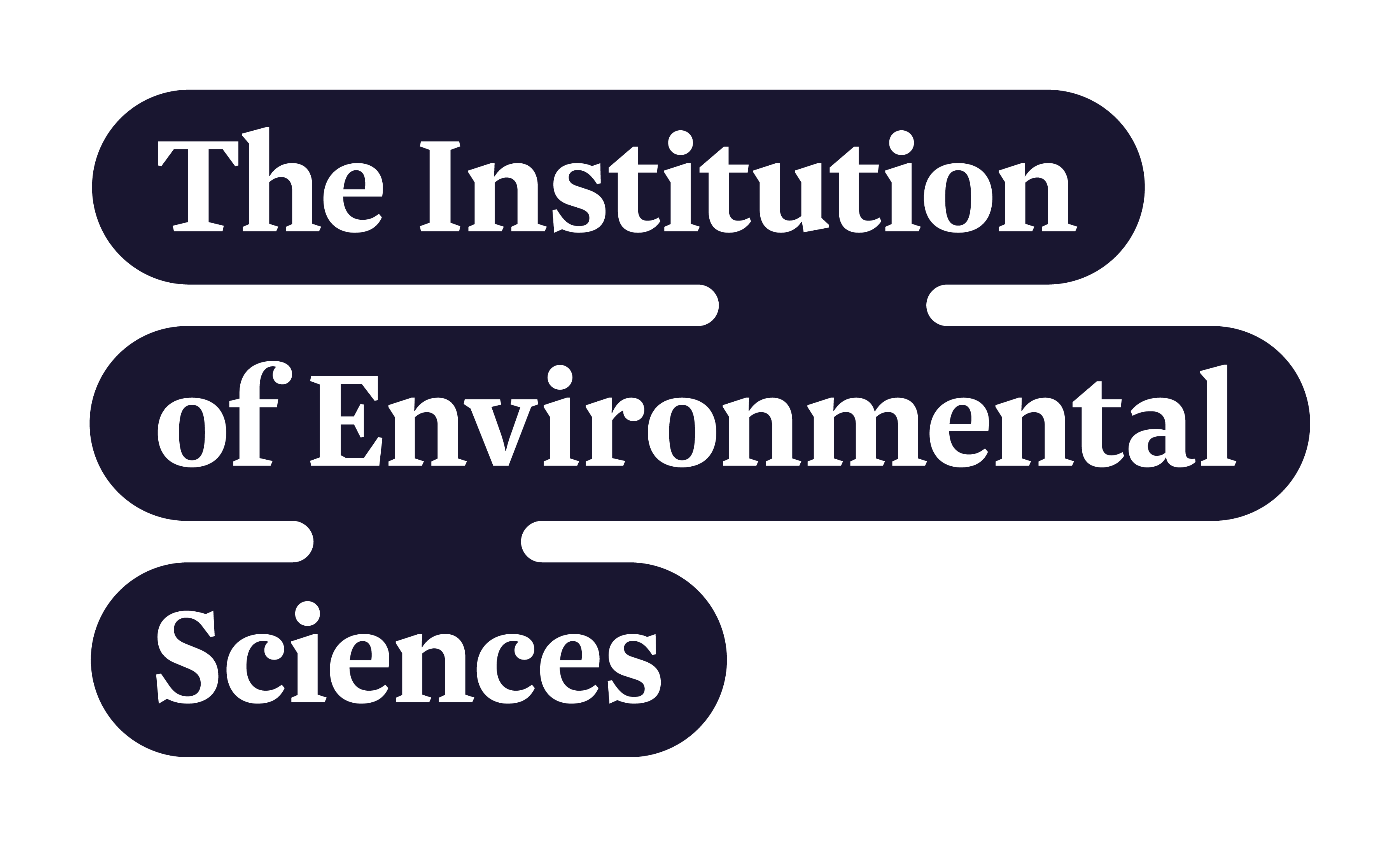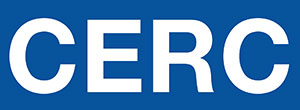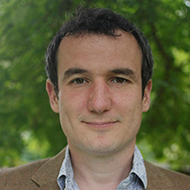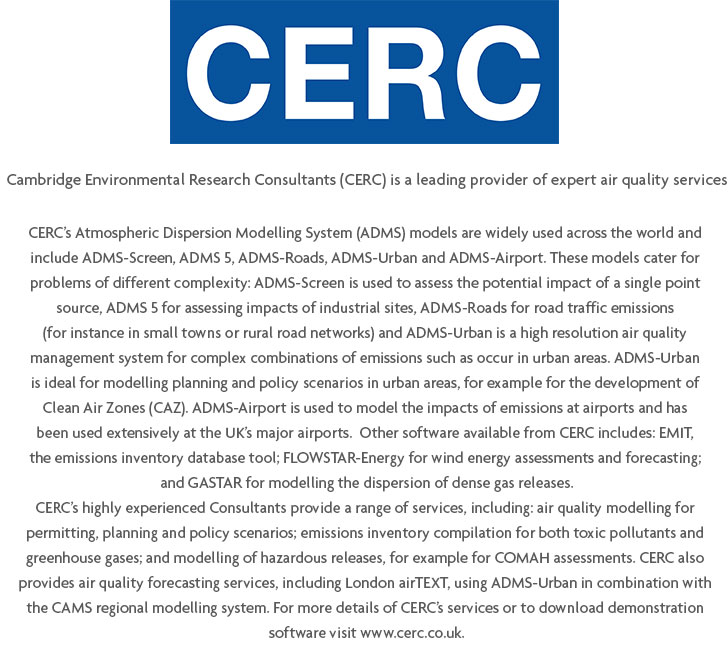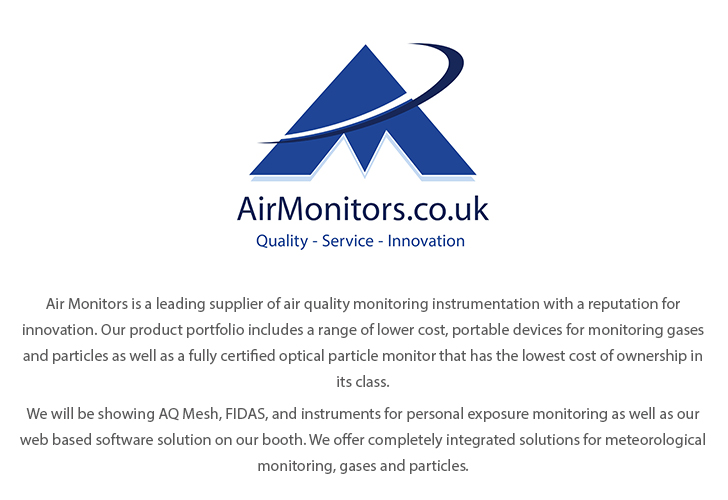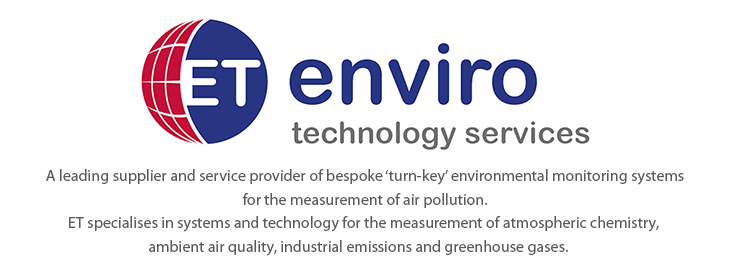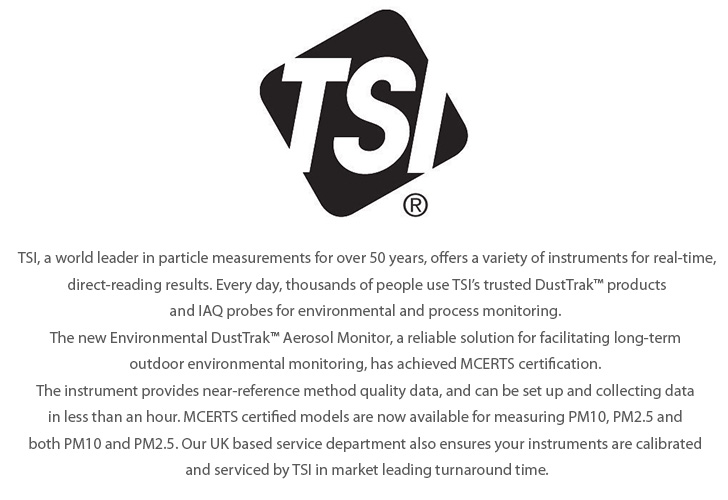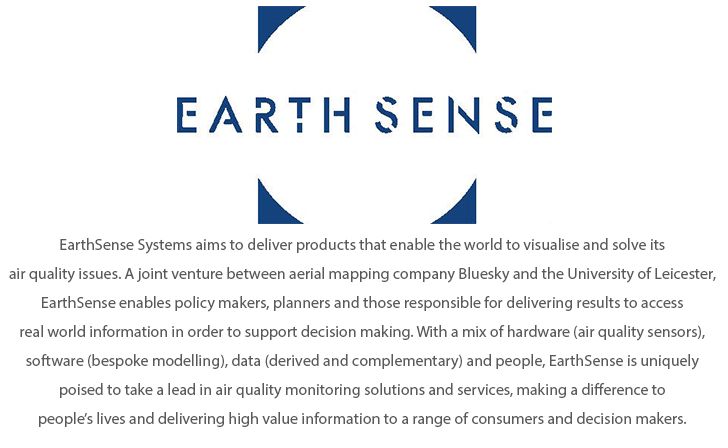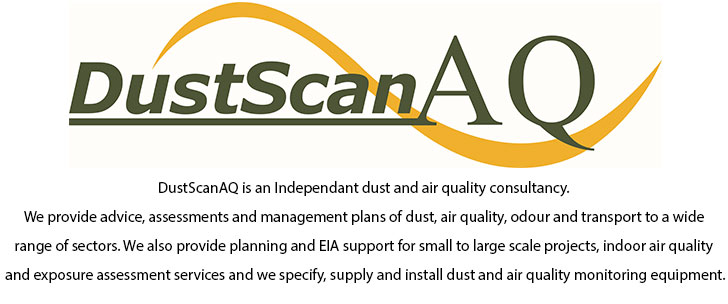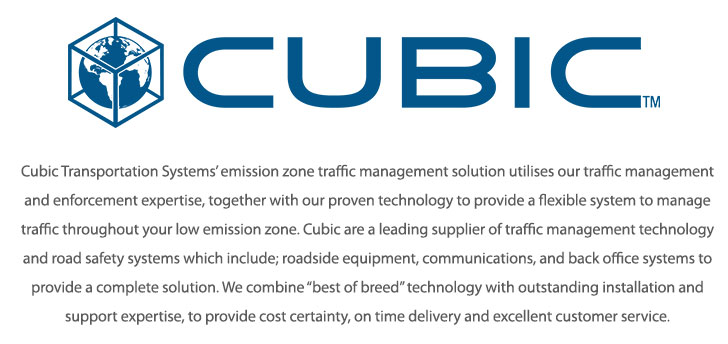Routes to Clean Air 2017
The Institute of Air Quality Management (IAQM) presents Routes to Clean Air 2017, a two-day conference where air quality, public health and transport professionals share their experiences of improving traffic emissions. With a fantastic line-up of high profile speakers, this is an essential conference for air quality professionals, make sure you don't miss out.
A three-course networking dinner is included in the price of your RTCA conference ticket.
- IAQM/IES Member Ticket - £260
- Standard Ticket - £360
The IES and IAQM aim to provide events, conferences and workshops which are accessible to all. If you anticipate needing any type of assistance to fully participate in this event, please email Rhianna Jarvis at rhianna@the-ies.org or call +44 (0)20 7601 1920 to speak to somebody in person.
Sponsored by:
Cambridge Environmental Research Consultants (CERC), a leading provider of expert air quality services.
CERC’s highly experienced Consultants provide a range of services, including: air quality modelling for permitting, planning and policy scenarios; emissions inventory compilation for both toxic pollutants and greenhouse gases; and modelling of hazardous releases and air quality forecasting services.
Meet our speakers
Sir David King, former Chief Government ScientistAir pollution from NOx: Origin, health impacts & regulatory requirements Sir King is the Senior Science Advisor to UBS and Director, Cambridge Kaspakas. He was the UK Government’s Chief Scientific Adviser and Head of the Government Office of Science (2000-2007), and Founding Director of the Smith School of Enterprise and the Environment, Oxford University (2008-2012). He is also Chancellor of the University of Liverpool, Adviser to President Kagame of Rwanda, Chair of the UK National Oceanography Advisory Board, and Member of the Ditchley Council. |
 |
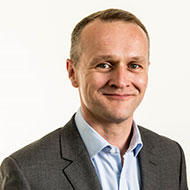 |
Andrew Benfield, Energy Saving TrustPlug-in vehicles and the transition to low emission road transport Andrew leads the Energy Saving Trust’s transport advice and support services to UK businesses, helping them to achieve cost savings, reduced carbon emissions and better local air quality. After starting his career at Hertz UK as Business Marketing Manager, Andrew joined the Energy Saving Trust, the UK’s leading energy saving charity, in 2002. He works with government funders across the UK (Department for Transport, Transport Scotland, Office of Low Emission Vehicles and Transport for London) to develop EST’s specialism in low emission advice to business fleets and the implementation of Ultra-low Emission Vehicles and infrastructure. Private sector clients include the BVRLA, Heathrow airport and Uber. |
Audrey de Nazelle, Imperial College LondonActive travel: Benefits & Trade-offs Audrey is a lecturer in air pollution management at the Centre for Environmental Policy, Imperial College London. She is an expert in risk assessment and exposure science. Her research is at the intersection of environmental sciences, health behaviour, transportation, and urban planning. Her work aims at guiding decision makers towards health-promoting built environments and policies. It involves novel and holistic approaches to assessing behavioural, environmental and health impacts of urban plans and policies. She holds a PhD and an MS from the University of North Carolina at Chapel Hill in Environmental Sciences and a Maitrise in Mathematics from the University of Paris-VI Pierre et Marie Curie. |
 |
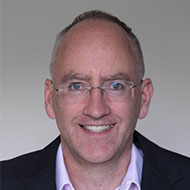 |
Dr David Carslaw, University of YorkWhat do European trends in ambient concentrations tell us about road vehicle emissions of NOx and NO2? David holds a joint position between Ricardo Energy & Environment and the Wolfson Atmospheric Chemistry Laboratories at the University of York. His main interests relate to understanding the factors controlling urban air quality. Recent interests involve the comprehensive measurement of vehicle emissions at both Ricardo and the University of York using vehicle emission remote sensing. David was the first to show that primary emissions of NO2 were increasing from diesel vehicles and that those increases have important implications for meeting air quality limits for NO2 across Europe. He has been a member of the Defra Air Quality Expert Group since 2002. |
Councillor Lisa Trickett, Birmingham City CouncilEvery Citizens’ Right – Right to Clean Air Councillor Lisa Trickett, elected in 2016, is the Labour Councillor to Birmingham’s Moseley and Kings Heath Ward. In June of 2014 she was appointed as Cabinet Member for a Smart, Green and Sustainable City. She retained this post until June 2016 when she became Cabinet Member for Clean Streets, Recycling and Environment. She now has accountability for positioning Birmingham as a ‘Green City’. Lisa provides strategic leadership of the city’s sustainability agenda, particularly in respect of employment, highways, transport and waste recycling. She has the strategic lead on policy and its implementation to address issues including climate change, clean air zones and reduction of fuel poverty amongst many others.
|
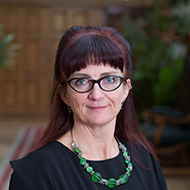 |
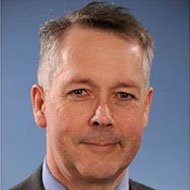 |
Professor Paul Cosford, Public Health EnglandAir quality and public health Paul CB, Director for Health Protection and Medical Director at Public Health England. Before joining Public Health England in April 2013, Paul was Director of Health Protection Services at the Health Protection Agency and was its Acting Chief Executive from September 2012 to March 2013. He was previously Regional Director of Public Health and Medical Director, leading the East of England’s public health system in the NHS, Department of Health and the then Government Regional Office. |
Daniel Marsh, King's College LondonLondon Low Emission Construction Partnership – Building a cleaner future for London Daniel works at the Environmental Research Group, King’s College London. As project manager for the London Low Emission Construction Partnership, a project funded by the Mayor; he works closely with the construction industry, raising awareness of air quality and the health impacts as well as running ‘real world’ emission mitigation trials. He also sits on the Greater London Authorities NRMM advisory committee. Daniel is a member of the IAQM and has contributed to their construction guidance through the working groups and was awarded the Ian McCrae award in 2016. |
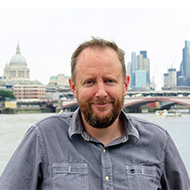 |
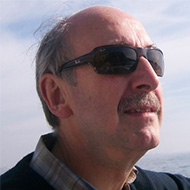 |
Professor Roy Harrison, University of BirminghamSources and trends in PM2.5, the good news and the bad Roy is Queen Elizabeth II Birmingham Centenary Professor of Environmental Health at the University of Birmingham, UK, and also Distinguished Adjunct Professor at King Abdulaziz University, Saudi Arabia. He has been heavily engaged at the science/policy interface as a member of several government technical advisory groups for the Department of Health and the Department for Environment, Food and Rural Affairs (Defra) in the U.K. including until recently membership of Defra’s Science Advisory Council. He was a contributor to the World Health Organisation Global Air Quality Guidelines and the Guidelines for Quality of Indoor Air. He was appointed an Officer of the Order of the British Empire (OBE) in the 2004 New Year Honours List and elected a Fellow of the Royal Society in 2017. He is author of over 500 papers in the peer-reviewed literature, and is listed by ISI as a Highly Cited Researcher. |
Nadine Allemand, CITEPAAir Quality in France: Trends, projections and key measures for improvement Nadine, deputy director of CITEPA since 2011, is an expert in atmospheric pollution. She holds a PH D in analytical chemistry. She joined CITEPA in 1986 and has gained extensive experience in air pollutant and GHG emission inventories, projections, policies and measures. Her work at CITEPA is currently shared between managerial and technical activities. Among other tasks, she leads the technical secretariat of the UNECE “Task Force of Techno-Economic issues” (TFTEI). She has provided extensive consultancy services to the French administration and industries in various fields of air pollution and anthropogenic activities. Currently, she is project leader of a twinning with Serbia to implement the MMR regulation and is providing capacity building activities in China, Russia and Georgia. |
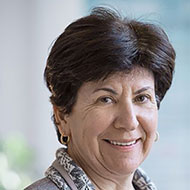 |
 |
Professor Frank Kelly, King's College LondonHealth effects of NO2: do these differ from those associated with PM2.5 exposure & if so, how? Professor Kelly holds the chair in Environmental Health at King's College London, where he is Director of the Environmental Research Group, Director of the NIHR Health Protection Research Unit on Environmental Hazards and Deputy Director of the MRC-PHE Centre for Environment & Health. He has led studies of the urban airshed within London including the impact of the introduction of London's Congestion Charging Zone and Low Emission Zone. Prof. Kelly provides policy support to the WHO on air pollution issues and he is Chairman of COMEAP the UK's Department of Health's Expert Committee on the Medical Effects of Air Pollutants. |
Polly Cook, Leeds City CouncilDeveloping an air quality solution for Leeds Polly is an Executive Programme Manager at Leeds City Council, heading up their breakthrough programme on cutting carbon and improving air quality. For the last two years, Polly has been leading the cross council response on air quality, liaising regularly with the Joint Air Quality Unit as well as stakeholders across the city. This has involved developing an air quality action plan that captures all the activity across the city that will support a reduction in emissions, ranging from additional parks and rides to the introduction of free parking for ULEV drivers and securing funding for an EV charge network for Taxi and Private Hire vehicles. |
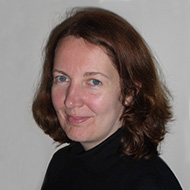 |
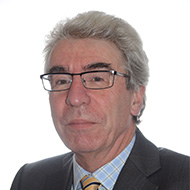 |
Alun McIntyre, Amec Foster WheelerIndirect emissions from a future UK ULEV fleet – An holistic view Alun’s career as an environmental consultant has spanned 32 years. After completing his PhD and a post-doctoral fellowship at Imperial College London in water pollution and wastewater treatment, he joined a fledgling environmental consultancy company and turned his attention to air quality and EIA. His career has taken him through the Middle East, Hong Kong, China, Malaysia, India, Africa and Europe, advising the private and public sectors and also contributing to European Commission research contracts. He has worked on, managed and directed environmental assessment projects dealing with urban infrastructure, power generation, industrial development, road, rail, aviation and sea-borne transportation and mining. He is currently the air quality practice director at Amec Foster Wheeler. |
Professor Simon Caporn, Manchester Metropolitan UniversityNitrogen deposition dose – response relationships for habitats Simon is a Professor in Ecology and Environment at Manchester Metropolitan University. Since 1989 the main focus of his research and teaching has been on the plant ecology of bogs and heathlands, with particular interests in the impacts of air pollution and climate change and restoration of damaged habitats. Simon and colleague Dr Chris Field have long-term manipulation experiments in Wales and Cheshire, running over 20 years, to study the impacts of nitrogen pollution on upland and lowland heathlands. This has enabled them to make valuable contributions to the science and policy debates on nitrogen pollution and its effects on the natural environment. |
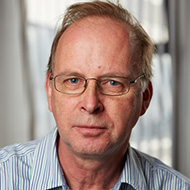 |
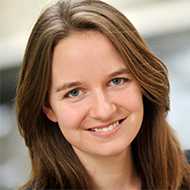 |
Rose Grogan, 39 Essex ChambersIs air quality taken seriously in planning decisions? Rose is a barrister at 39 Essex Chambers, specialising in planning, environmental and public law. Her recent cases include acting for TfL in the ClientEarth litigation and for local authorities in the challenge to Heathrow expansion (also involving air quality issues). She regularly acts for developers, local authorities and DCLG in planning disputes. Rose was named as “highly recommended” in Legal Week’s ‘Stars at the Bar’ profile of the most promising junior barristers under 10 years and has appeared in Planning Magazine’s list of top juniors under 35. |
Professor Jonathan Grigg, Queen Mary University of LondonAir pollution & children – What we know & what more we need to know? Jonathan is a professor of Paediatric Respiratory and Environmental Medicine at Queen Mary University of London, and an honorary consultant paediatrician at The Royal London Hospital. His research interests include air pollution and children’s health, effects of pollutants on airway cells, and the treatment of paediatric asthma. He was Vice Chair of the Royal College of Physicians’ working party on the long term effects of air pollution, and is a member of the committee on the medical effects of air pollutants (COMEAP). |
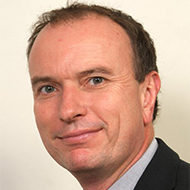 |
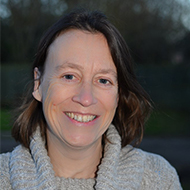 |
Dr Nicola Carslaw, University of YorkIndoor air pollution & why it matters Nicola is a Reader in Air Pollution in the Environment Department at the University of York. She specialises in developing detailed chemical models to understand chemical processing in the atmosphere and indoors. Recent work has focused on the chemical processing that follows cleaning activities, using both surface cleaners and commercial cleaning devices. She has also studied the impact of emissions from material surfaces (such as carpets) and humans indoors. Finally, she is a member of the Department of Health’s Committee on the Medical Effects of Air Pollution (COMEAP). |
Dr Adrian Phillips, Birmingham City CouncilClean Air – a right or a choice? Adrian qualified in medicine from Birmingham University in 1985. He spent his formative years in acute hospital medicine, treating many “avoidable illnesses”, especially coronary heart disease, lung cancer and chronic lung diseases. Adrian’s main public health interests are the interplay between public health and regeneration and how we can best use intelligence until it “hurts”. He is curious about how you can apply business quality principles within public services, including those derived from commerce and industry relating to scale and changing behaviour. He believes we also need to learn entrepreneurial skills to tackle stubborn public health issues – “we won’t get different results by doing the same things.” |
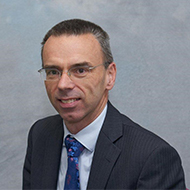 |
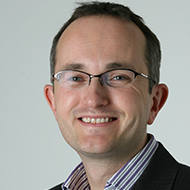 |
Nick Molden, Emissions AnalyticsCan Euro 6 alone be a robust basis for air quality policy? Nick founded Emissions Analytics in 2011 in order to understand real-world fuel economy and emissions from vehicles. This database is now a platform for analysing and modelling this data, from which are created the EQUA Air Quality Index in Europe and Real MPG in the USA, as well as extensive testing of heavy and light duty commercial vehicles. Nick is a specialist in data analytics, particularly in the automotive market, through his prior work at Oxford Indices Ltd, a data specialist, United Business plc and Haymarket Media Group. He is a graduate of the University of Oxford, with an MA in Philosophy, Politics and Economics. |
Dr Francis Pope, University of BirminghamUsing low cost particle sensors for characterisation of urban air pollution: insights from Birmingham and Nairobi Dr Francis Pope is a lecturer in atmospheric science at the University of Birmingham. He is expert on the causes and effects of atmospheric pollution. He recently held a Birmingham Fellowship which allow outstanding, high potential researchers to establish world leading research groups. His group work on a range of problems associated with atmospheric science and environmental health. He provides policy directed research on road vehicle pollution for the Department for Environment, Food and Rural Affairs, Transport Scotland, and the Department for Transport. Furthermore, he is an editor for the prominent ‘Atmospheric Measurement Techniques’ journal and a convener for the largest European environmental conference (EGU) which attracts over 15000 delegates. |
|
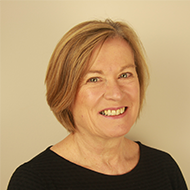 |
Dr Claire Holman, Brook Cottage Consultants Ltd and University College LondonAshdown Forest: implications of recent legal judgements Claire has worked on air quality management for over 30 years since completing her PhD in 18980 for research into tropospheric ozone formation. For most of her career she has worked as a consultant , and is currently Directive of Brook Cottage Consultants which she established in 2013. Claire is currently Chair of the Institute of Air Quality Management (IAQM) and a visiting researcher at UCL. Over the years she has worked on a wide range of projects including advising the European Commission on the feasibility of vehicle emission standards, project managing on behalf of DfT the development of the particle numbers test protocol which has been incorporated into the vehicle/engine type approval process, characterising air quality over a 20 km by 50 km area around Jeddah in Saudi Arabia. She has also undertaken numerous air quality assessments for planning and permit applications, and appeared as an expert witness in planning inquiries, hearings and litigation. She has advised local authorities on a range of air quality issues including drafting supplementary planning guidance.). She has contributed to the development of IAQM professional guidance and been a member of several government committees. |
Exhibiting at Routes to Clean Air
Wanting to Exhibit?
Routes to Clean Air attracts consultants, transport professionals, local authorities and regulators, providing an excellent opportunity for organisations to interact with their target audience of experts and buyers. This conference is for expert practitioners focusing on the knowledge sharing, therefore there is only a limited number of spaces for exhibitors.
Benefits of exhibiting:
- Listing on the event page on both the IAQM and Institution of Environmental Sciences (IES) websites.
- Promotion on the IAQM and IES Webistes, Twitter and LinkedIn accounts
- Inclusion in both digital and printed versions of the delegate pack
- Attendance at the conference dinner
Book your place now to avoid disappointment and to maximise your exposure.
The IAQM Ian McCrae Award
We are still accepting entries for the award.
Are you an IAQM Associate or Member in the early stages of their career (approximately the first five years)? Then enter for your chance to win this prestigious title and a free ticket to Routes to Clean Air, where the winner will be presented with a trophy.

